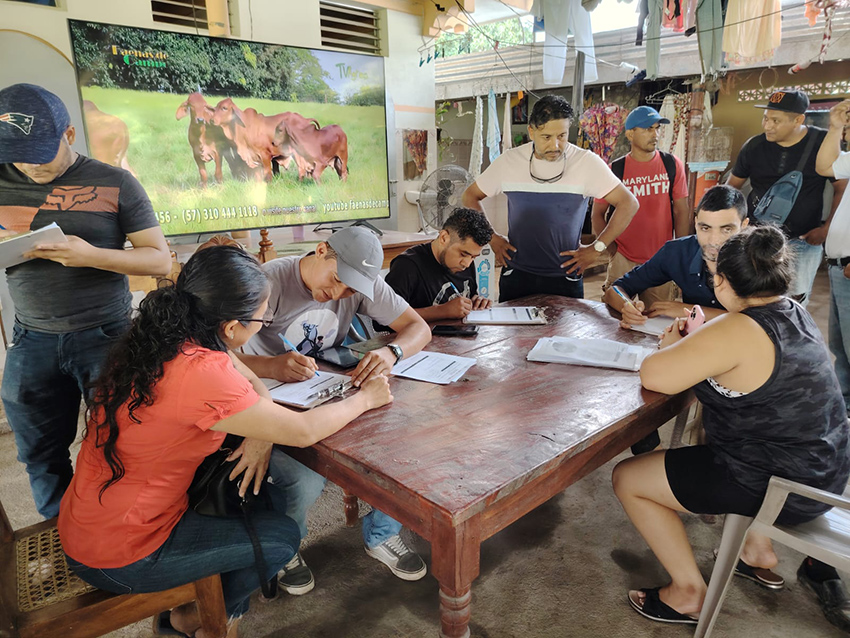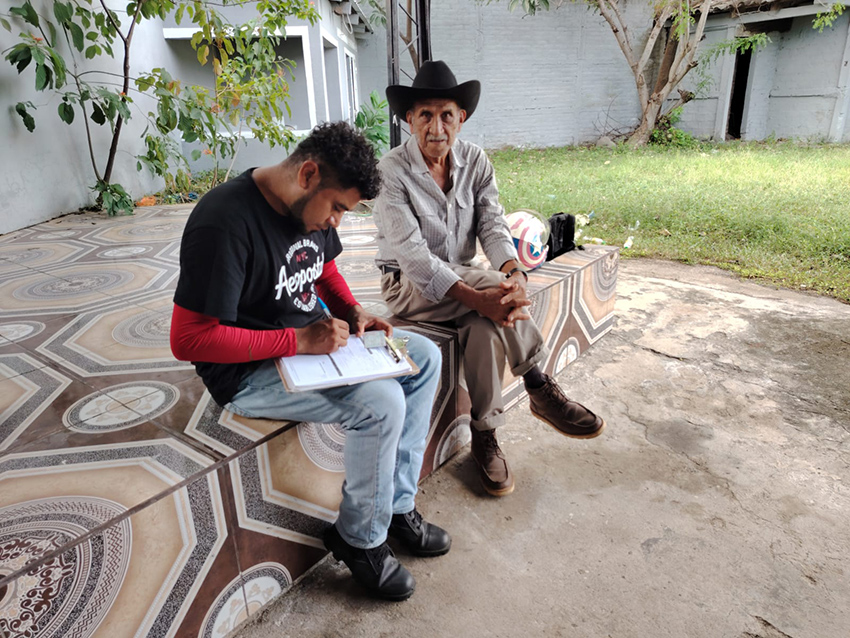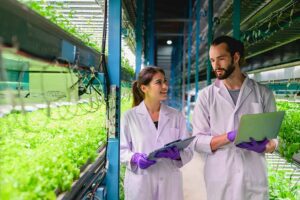Implementation of silvopastoral systems project advances in San Francisco Menéndez, Ahuachapán, El Salvador

- Initiative implemented by the ESCALAR project seeks to have an impact on approximately 150 local producer families.
The promotion of sustainable agriculture that is resilient to climate change is the objective of a project that seeks to establish 414 hectares of silvopastoral systems (SSP) in livestock farming, which is being developed in the San Francisco Menéndez district, department of Ahuachapán, El Salvador.
The project is funded by the Adaptation Fund (AF), with the United Nations Development Programme (UNDP) as development partner, the Ministry of Environment and Natural Resources (MARN) and the Environmental Investment Fund of El Salvador (FIAES) as implementing partners, and the Tropical Agricultural Research and Higher Education Center (CATIE) as executing partner.
This project promotes changes in the area's production systems, with the aim of having an impact on approximately 150 local producer families.
As part of the implementation of the project, progress has been made in the territory, such as the updating of 70 farm plans in five hamlets belonging to the cantons of El Zapote, Garita Palmera, El Sacramento and La Hachadura, which have an area of 210.40 hectares. These 70 farm plans are equivalent to an equal number of producer families, 37% of them led by women.
In addition, six technical follow-up visits were made to an equal number of producers, covering an area of 19 hectares in the district, that were part of the “Convocatoria 70” initiative previously promoted in the territory.

Finally, two workshops were held to strengthen the capacities of producer families in the silvopastoral system technique. The workshops addressed the fundamentals of these systems and were attended by 49 producers, 29% of whom were women.
According to Aroldo Gómez, a promoter of silvopastoral systems from CATIE, this system, by combining pasture and fodder trees, helps both improve nutrition and protect livestock from the adverse conditions of climate change. It also has economic benefits such as the sale of wood and fruit, allowing the diversification of agricultural products.
Silvopastoral systems enhance production, since the use of improved pasture seed leads to an improvement in the quality of livestock feed and milk production. In terms of environmental benefits, incorporating different species of trees into this system promotes the conservation of water sources.
This is an initiative managed by the ESCALAR Project: Scaling up climate change adaptation solutions for resilience and migration reduction in the Central American Dry Corridor, led by CATIE with the support of the Swedish Cooperation.
Written by:
Patricia Orantes
Development Communication Specialist
ESCALAR Project
CATIE
patricia.orantes@catie.ac.cr



